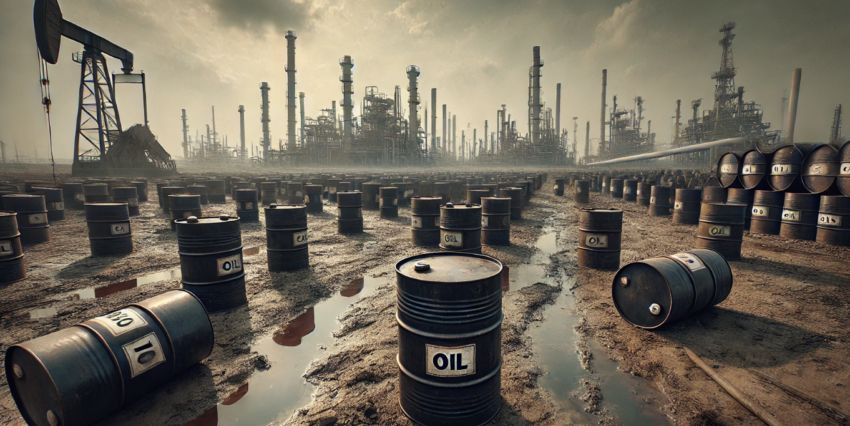| Listen to our audio presentation: History of the US Supreme Court |
President Joe Biden has confirmed that the United States and Israel are discussing the possibility of Israeli strikes on Iran’s oil infrastructure. This comes in response to a recent missile attack from Iran, which has further strained relations in the already volatile Middle East.
- President Biden confirmed US-Israel discussions on potential Israeli strikes against Iran’s oil infrastructure following a missile attack.
- Iran’s missile strike on Israel was in retaliation for the deaths of several high-profile figures linked to Hamas, Hezbollah, and the IRGC.
- Crude oil prices surged 5% immediately after Biden’s remarks, reflecting market concerns over a potential escalation.
- There are rising fears of disruptions in the Strait of Hormuz, a critical route for global oil and LNG shipments.
- Israel is preparing a “harsh response” to the missile attack, with military and diplomatic actions expected in the coming days.
When questioned by reporters about his stance on supporting such strikes, Biden responded, “We’re discussing that. I think that would be a little… anyway.” This remark, while somewhat ambiguous, reflects the gravity of the ongoing consultations. Previously, Biden had expressed opposition to any Israeli strikes targeting Iranian nuclear facilities, a point that has been raised by some Israeli officials, including former Prime Minister Naftali Bennett. Bennett had argued that targeting Iran’s nuclear infrastructure could reshape the Middle East.
The missile attack that spurred these discussions occurred on Tuesday when Iran launched 180 ballistic missiles at Israel. Iran has described the attack as retaliation for the deaths of prominent figures, including Hamas leader Ismail Haniyeh, Hezbollah’s Hassan Nasrallah, and Iranian Revolutionary Guards Corps commander Brigadier General Abbas Nilforoushan. Israeli Prime Minister Benjamin Netanyahu responded, promising that Iran “will pay a heavy price,” as reported by the Times of Israel.
The broader geopolitical consequences of the attack and potential Israeli retaliation have already begun to affect global markets. According to CNBC, the price of crude oil surged by 5% following Biden’s comments, reflecting the market’s unease over a potential escalation that could disrupt key oil-producing regions. Oil prices have risen by 10% since the missile strike, with concerns centered on the possibility of an Israeli attack on Iran’s oil facilities.
If the situation escalates, there are growing fears about disruptions in the Strait of Hormuz, a crucial passage for global oil supplies. A significant portion of the world’s oil and liquefied natural gas (LNG) passes through this narrow waterway, and any conflict could have severe consequences for energy markets. Analysts have noted that, while OPEC+ currently has enough spare capacity to mitigate some disruptions, a broader regional conflict could drive oil prices significantly higher, with estimates suggesting they could even reach $200 per barrel.
Despite the high tensions, Biden stated that there was no immediate expectation of Israeli retaliation on Thursday. He emphasized that the US plays an advisory role with Israel, rather than granting direct permission for military actions. Additionally, G7 leaders have agreed with Biden that Israel has the right to respond but urged that any response be proportional, according to BBC News.
While Israel is expected to carry out a “harsh response” in the coming days, as reported by Channel 12 in Israel, the exact timing and nature of the retaliation remain uncertain. Israeli defense forces are reportedly preparing for a range of military actions, but the government is also applying diplomatic pressure to impose tougher sanctions on Iran. In addition to military measures, Israel sees an opportunity to push for a stronger global stance against Tehran, a regime it views as a major threat to regional stability.
With the world watching closely, the next moves by Israel and Iran could have profound implications not only for the Middle East but also for global energy security and economic stability.

